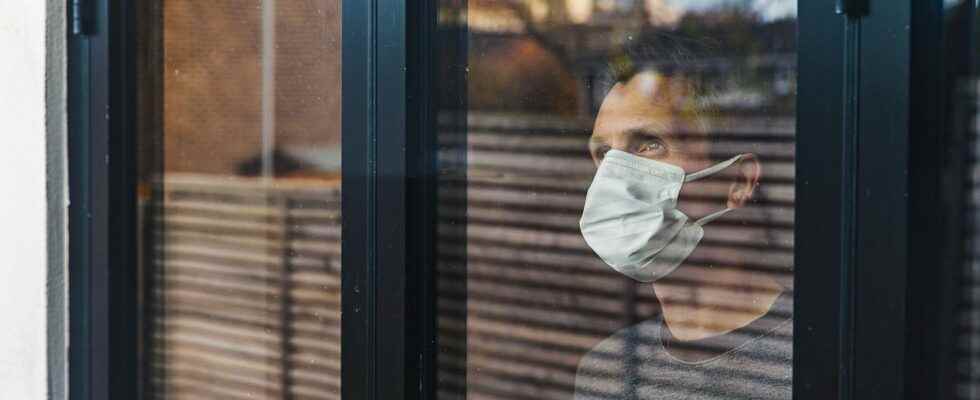Published on
Updated
Reading 2 mins.
in collaboration with
Dr Gérald Kierzek (Medical Director)
Covid-19 contaminations have risen sharply since the start of the summer. With more than 120,000 positive cases per day in France, it is necessary to remember the actions to take at home in the event of contamination with Covid-19. Update with Dr Gérald Kierzek, emergency doctor and medical director of Doctissimo.
Isolation rules in the event of a positive test
If you test positive for Covid-19, you must isolate yourself:
- 7 days if you have a complete vaccination schedule or are less than 12 years old;
- 10 days if you have an incomplete vaccination schedule or are not vaccinated.
But how do you treat yourself when you’re locked up at home? What are the right steps to take? And when do you really have to worry?
Respect the duration of isolation
The first thing to do is to “respect the duration of isolation”according to Dr. Gérald Kierzek.
If your vaccination schedule is complete, you can leave isolation after 5 days on two conditions:
- You have performed an antigen or RT-PCR test and it is negative;
- You have had no clinical signs of infection for 48 hours.
The two conditions are the same for non-vaccinated people but they can be released from isolation after 7 days.
If you do not test or are positive at that time, you must respect the initial duration of isolation (either 7 or 10 days depending on your profile).
“Beyond the recommended duration, you should not wait to have a negative test to lift the isolation period because people remain positive for a very long time”advises Dr Gérald Kierzek.
Respect barrier gestures at home
“To protect those around you at home, it is essential to respect barrier gestures (wearing a mask and hygiene measures)”, explains Dr Gérald Kierzek. These barrier gestures must also be respected for 7 days following your release from isolation.
Dr. Gérald Kierzek has listed several barrier gestures to adopt if you are isolated with your loved ones:
- Live in isolated rooms;
- Eat at staggered times;
- Wear a mask;
- Avoid rubbing shoulders with the most fragile;
- Clean and disinfect door handles and other supports;
- Be careful with your toothbrush – don’t put it in the same glass as your loved ones;
- Dispose of contaminated waste (in a separate bag).
Regarding your state of health:
- Take paracetamol if you have headaches, fever or sore throat;
- Check your temperature morning and evening only, no more;
- Check your oxygen saturation morning and evening also if you really need to be reassured;
- Make sure you are well hydrated.
Consult a GP online
When should you worry?
Several symptoms can be cause for concern, according to Dr. Gérald Kierzek:
If you have any of these symptoms, call your doctor or the SAMU Center 15.
